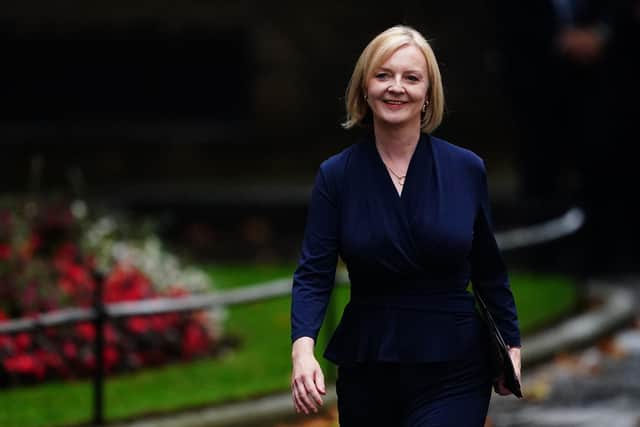How the first 100 days of Liz Truss's time in office could define her as PM - Patrick Watt, Christian Aid
The parallels with today’s world hardly need pointing out. The largest pandemic in a century has been rapidly followed by the invasion of the world’s third biggest cereal exporter, by the world’s biggest energy producer. The economic fallout is enormous. Extreme poverty has risen, inequalities have been entrenched and across every continent we see growing political volatility. In the UK, millions of people are being forced to choose between food and fuel.
Yet the scale and urgency of unmet human need is where parallels with the 1930s end. In today’s world, the courage and vision that animated Roosevelt’s New Deal feels in short supply. Covid vaccine hoarding by G7 governments and profiteering by big pharma cost an estimated 600,000 lives in Africa and Asia. Despite repeated warnings of a worsening hunger crisis in East Africa, a lack of early intervention now leaves 37 million people on the brink of famine. Action on the climate crisis, a major factor in Pakistan’s floods and East Africa’s drought, is lagging what was promised and what is needed.
Advertisement
Hide AdAdvertisement
Hide AdEffective action on these challenges demands international cooperation. Even if talk of “British leadership” is hackneyed, as one of the world’s biggest economies and diplomatic powers, the UK does hold genuine levers with which it can tackle the underlying causes of global poverty, from conflict to climate change. And as one of the world’s biggest historic and current carbon emitters, it has a clear responsibility to do so.


In this interdependent world, the new Prime Minister cannot afford to treat international solidarity as an expensive luxury. Or worse still, construct a competition between the needs of the most vulnerable people in the UK, and of people in extreme poverty in the wider world.
Just as action is needed on the cost-of-living crisis at home, the UK also needs to pull its weight on the financial response to hunger in East Africa. In 2017, a British contribution of £700m to the region helped to avert famine. In 2022, the UK has so far committed less than a quarter of this sum and has failed to follow the lead provided by the United States and other donors.
Responding with urgency to the hunger crisis can and should happen in the context of a swift return to meeting the UK aid promise of 0.7 per cent of national income, following cuts under the former Chancellor Rishi Sunak for reasons that had nothing to do with affordability, and everything to do with his political positioning in the parliamentary party.
Advertisement
Hide AdAdvertisement
Hide AdJust as the false choice between responding to poverty at home and abroad should be rejected, so should any idea of a trade-off between action on the cost of living, and on the climate crisis. The Conservative leadership contest saw some candidates improbably pinning rising energy costs on net zero, and the incoming Prime Minister has committed to scrapping the green levy. With the UK holding the presidency of the COP until November, there is an urgent need for Liz Truss to use her position to build ambition in the run-up to the COP27 in Egypt and support a just transition to net zero that tackles energy poverty and safeguards the environment.
Less than a year ago in Glasgow, Sir David Attenborough urged leaders at the UN climate summit to be “motivated by hope rather than fear”. This same spirit of hope needs to be channeled now.
Patrick Watt is the chief executive of Christian Aid.